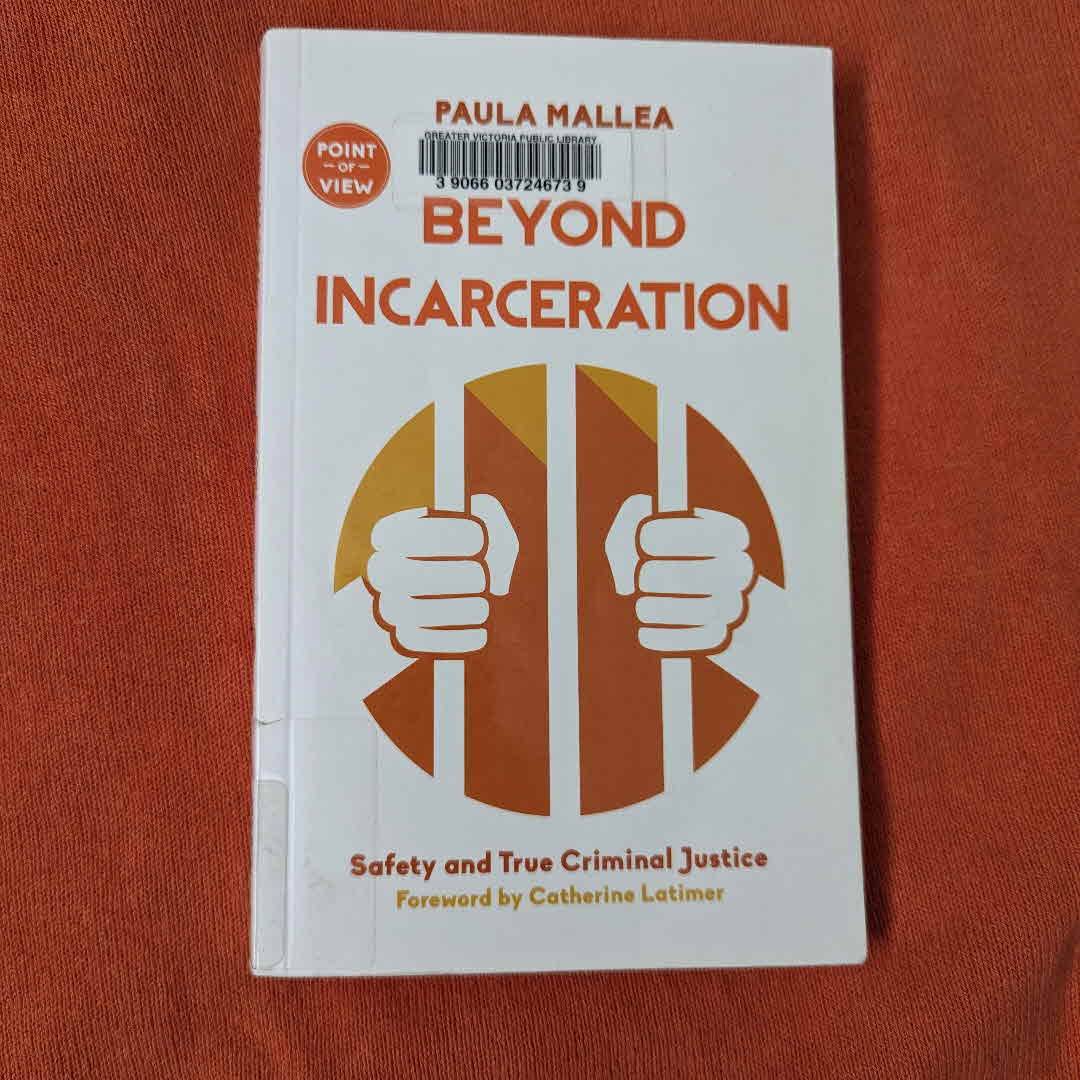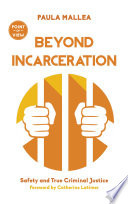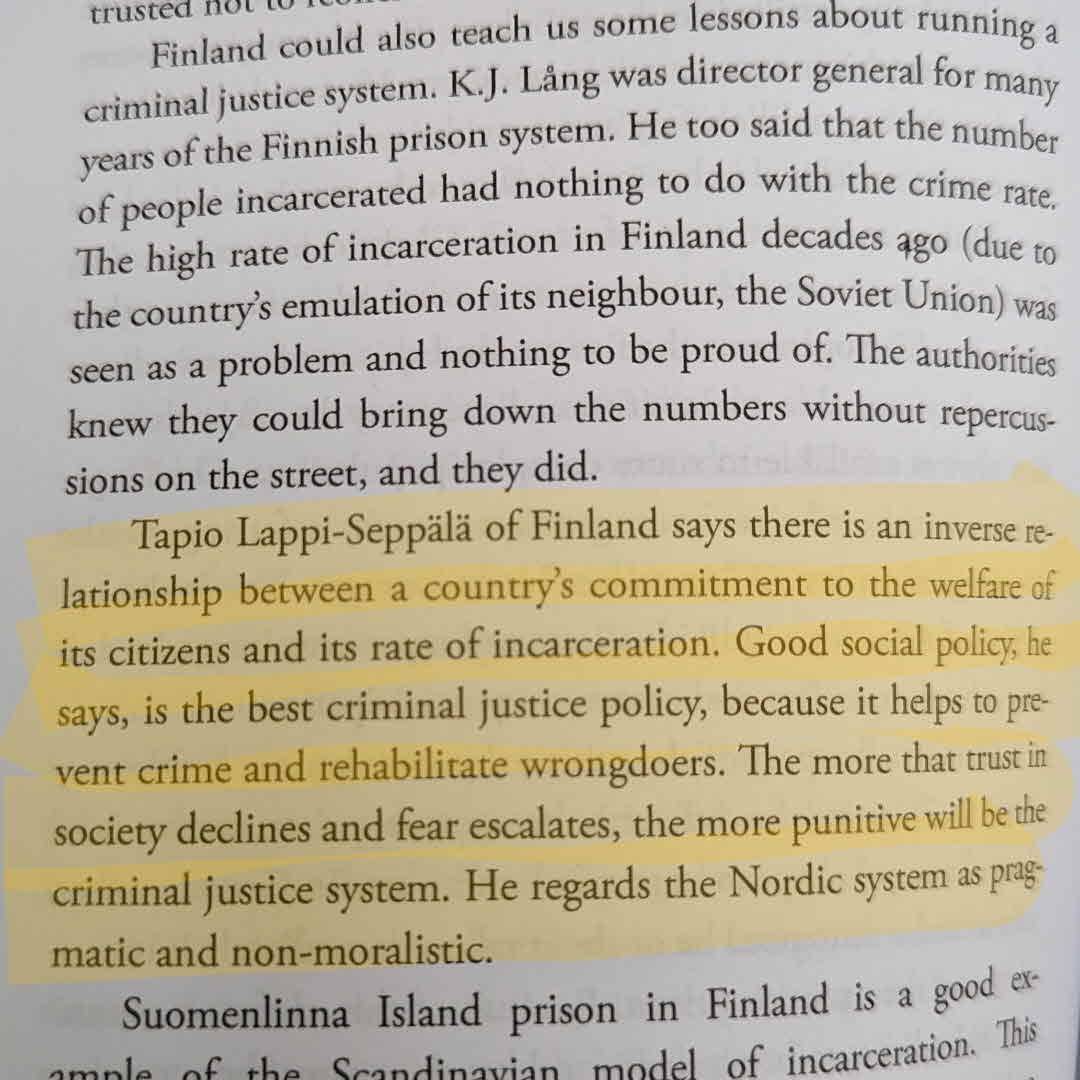
Both comprehensive in approach and concise in conveying a message, I found this a highly useful resource with one notable exception.
The author presents issues with sentencing, a brief history of problems within Canada's prison system, the issues that are still prevalent at the time of publication, and then tackled the obvious question: 1/? [Buckle up, it's gonna be a long one.]




























She then presents methods and models that have been proven to work in various scenarios and locations as alternatives. 1y
It just feels a bit to me, like that emphasis leaves room for the wrongly accused to be condemned to being ostracized - and don't the stats hold out that systemic racism plays a part in wrongful conviction? Wrongful imprisonment was not a subject covered by the book. 🫤 1y
The answer is mixed. Since 2017: 1y
Administrative segregation was abolished, but the new system might not be any better and still doesn't have a cap on days that can be spent in 'the hole'. Provincial jails have agreed to no longer detain refugees, but that doesn't answer whether federal jails will do the same, and whether this means the preferred community based alternatives are available.
Some mandatory minimum sentences are still in place. 1y
I appreciate the facts laid down and the further reading presented, it gives the reader a chance to make up their own minds, and pursue the cause. As Mallea states in the conclusion, grassroots efforts of Canadian citizens will be key in making such an important change in our society. 1y